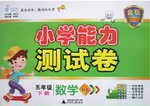题目内容
Heather Jack and her family, including her two children, usually spend the Christmas holidays preparing a feast—for others to eat. Last Christmas Eve, they went to a house in the neighborhood and prepared a dinner for an elderly woman and her son, who has muscular dystrophy(肌肉萎缩症). They stayed for an hour and chatted before heading home to prepare for a visit from Santa (圣诞老人).
“I think it is that kind of direct experience that many find so meaningful,” says Heather, president and founder of The Volunteer Family, a Boston-based organization dedicated to matching families with volunteer opportunities, both during the holidays and year-round. “It’s a great way for parents to involve the kids.”
In a holiday season that stretches from before Thanksgiving to just after the New Year, it’s nice to hear stories about people with their children giving instead of receiving. Last December Gary and Debra Danoff and their two teenage sons drove to the Washington, D. C. Jewish Community Center(JCC) and spent Christmas morning in the Center’s kitchen preparing a feast for homeless shelters.
By choosing to prepare meals for the homeless, the Danoffs bring together a belief in community service with their love of cooking, “It feels good to prepare food with our kids for other people at Christmas,” says Gary. “We want them to know that many people don’t have the ability to go to the supermarket and pick the foods they want to eat and pay for them.”
The Danoffs were in good company. Across the city, at least 1000 volunteers with their children went across the region to provide food to the poor people as part of the D. C. JCC’s annual “December 25th Day of Service”, now in its 22nd year.
41. The Heathers did all the following things except last Christmas Eve.
A. preparing a dinner for a poor family
B. chatting with the elderly mother and her disabled son
C. making preparations for their own Christmas festival
D. visiting one of their good friends in other district
42. What does “The Volunteer Family” do?
A. It matches families with volunteer opportunities.
B. It supplies food and service to the poor families.
C. It encourages parents to involve their kids in volunteer work.
D. It earns much money by organizing volunteer families.
43. Why do the Danoffs want their children to join in the volunteer work?
A. To let them learn to prepare meals by themselves.
B. To let them know that many people are in need of help.
C. To let them know that they have the ability to cook.
D. To let them have a meaningful Christmas with the homeless shelters.
44. What does the sentence “The Danoffs were in good company” mean in the last paragraph?
A. Mr. Danoff and his wife work for a very good company.
B. More volunteer families prepare food for poor people at Christmas.
C. The volunteer families should have jobs in good companies.
D. The Danoffs are in good luck to get the volunteer opportunity.
45. What can be learned from the passage?
A. Volunteers seldom involve their children in the work.
B. Volunteer opportunities can only be got during holidays.
C. Most people love to hear stories about giving and receiving.
D. The volunteer programs in the D. C. JCC’s have lasted for 22 years.
DABBD

 小学能力测试卷系列答案
小学能力测试卷系列答案In January 1986 I saw a show about cartooning called “Funny Business” on TV. I had always wanted to be a __36__but never knew how. So I wrote to the host of the_37_, cartoonist Jack Cassady, asking for advice on entering the profession(职业).
Two weeks later I got a (n) __38__letter from Jack, answering my questions about materials and process(过程). He also __39__ me not to get discouraged if I was refused__40__. He said the cartoon samples(样本) I sent him were good and worthy of publication(出版).
I got very __41__, finally understanding how the whole process__42__. I sent my best cartoons to Playboy and New Yorker, ___43___ the magazines rejected(拒绝)me immediately. Discouraged, I put my art supplies in the box and__44__to forget all about cartooning.
To my__45__, in June 1987 I got another letter from Jack, although I hadn’t even__46__ him for the former advice. Here’s what he said:
Dear Scott,
I was reviewing my “Funny Business” mail file when I again came__47__ your letter and your cartoons. I remember answering you letter.
I’m writing to encourage you to submit(提交) your ideas to various publications again. I hope you have __48__ done so and are making progress and having some__49__ too. Sometimes encouragement in the funny business is hard to come by. That’s__50__ I am encouraging you to hang in there and keep drawing.
I wish you good luck.
Sincerely,
Jack
I was deeply__51__because Jack had nothing to gain—including my thanks. I acted on his__52__, took out my art supplies and inked the sample strips(漫画连载) that__53__ became Dilbert.
I feel__54__that I wouldn’t have tried cartooning again if Jack hadn’t sent the second letter. As Dilbert became more successful I came to __55__ Jack’s simple act of kindness.
| 【小题1】 |
|
| 【小题2】 |
|
| 【小题3】 |
|
| 【小题4】 |
|
| 【小题5】 |
|
| 【小题6】 |
|
| 【小题7】 |
|
| 【小题8】 |
|
| 【小题9】 |
|
| 【小题10】 |
|
| 【小题11】 |
|
| 【小题12】 |
|
| 【小题13】 |
|
| 【小题14】 |
|
| 【小题15】 |
|
| 【小题16】 |
|
| 【小题17】 |
|
| 【小题18】 |
|
| 【小题19】 |
|
| 【小题20】 |
|